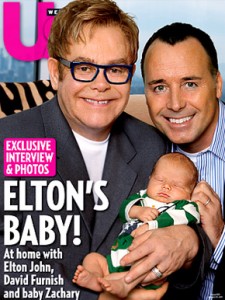By Mark Ellis

In the heat of the U.S. Supreme Court’s consideration of same-sex marriage, the American Academy of Pediatrics (AAP) came out in favor of gay marriage, stating it would strengthen families and benefit children.
Some, however, believe the AAP rushed to judgment with scant scientific proof to back their conclusions.
“I think they have allowed themselves to be politicized,” charges Dr. Jennifer Morse, president of the Ruth Institute, which promotes traditional marriage. “When you look at the report closely, there is no new data in there,” she notes.
“It looks bad to be releasing this kind of report at this time with so little new factual information,” she says. “It gives the appearance of impropriety.”
There are 60 footnotes referenced in the AAP’s report, but none are based on reliable science, according to Dr. Morse. “I don’t see a single reference to epidemiology or any link to health benefits,” she observes. “There is nothing medical here. It’s all a combination of social science and advocacy.”
The late Sen. Daniel Patrick Moynihan, himself a noted social scientist, once said, “Social science is rarely dispassionate, and social scientists are frequently caught up in the politics which their work necessarily involves…The pronounced ‘liberal’ orientation of sociology, psychology, political science and similar fields is well established.”
The most prominent case cited by the AAP report is the National Longitudinal Lesbian Family Study, which relied on a sample recruited entirely at lesbian events, in women’s bookstores, and through lesbian newspapers, according to Nelson Lund, a law professor at George Mason University.
Lund says there are virtually no scientific studies of children raised by homosexual men. “The effect of parenting by male homosexual couples remains in the realm of anecdotes,” he notes in his amicus brief supporting California’s Proposition 8.
The National Longitudinal Lesbian Family Study began in 1986 with 154 lesbian mothers who conceived children through artificial insemination. A recent look at 78 offspring found that the children seemed to do better than children in a similar study involving more diverse families.
“I can tell you we’re never going to get the perfect science, but what you have right now is good-enough science,” said Benjamin Siegel, a professor of pediatrics at Boston University School of Medicine, who co-authored the AAP report. “The data we have right now are good enough to know what’s good for kids.”
The AAP report he co-authored downplayed a more recent scientific study conducted by Mark Regnerus, a sociologist at the University of Texas Austin. His study found that children raised in same-sex households were more prone to depression, diminished educational achievement, and were more likely to be sexually abused, on welfare, and involved in criminal behavior than children of intact biological families.
Regnerus and his study was vociferously attacked by pro-gay-marriage activists. Yet his was the only study using a large randomized sample, objective measures of well-being, and reports of grown children rather than their parents.
“Most research has relied on reports by parents about their children’s well-being while the children were still under the care of their parents,” according to Professor Lund, at George Mason. “Even a social scientist should be able to recognize that parents’ evaluations of their own success as parents might be a little skewed.”
The seeming haste by the AAP, coinciding with the Supreme Court’s deliberations seems questionable. “What is the rush to offer an opinion on a divisive topic like the definition of marriage, when so little solid data is available?” asks Dr. Morse, with the Ruth Institute. “The evidence on lesbian parenting is of low quality, and the evidence on gay men parenting is virtually non-existent.”
Morse notes that the AAP remains silent on two issues that may have greater impact on the health and well-being of children: divorce and the risks associated with In Vitro Fertilization (IVF).
“Children are harmed when their parents dissolve low-conflict marriages,” she says. “The data on this point is far deeper, of longer standing and more robust than any data on the impact of redefining marriage on the children of same sex couples.”
“IVF is associated with elevated risks of cerebral palsy, infections, and birth defects. Far more children are potentially impacted by both of these social practices than by the relationships of same sex couples.”
“The AAP report looks more like a piece of pro-gay advocacy than a piece of considered policy work.”



